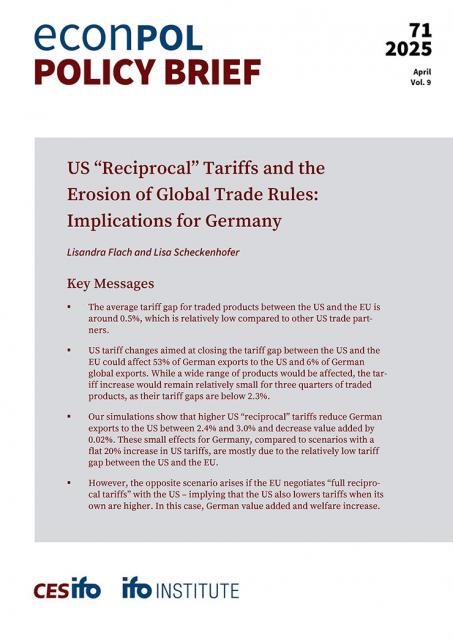News Archive

The Size of Government
|
Working Paper
| News
What government should do, how it should spend and how far it should intervene in the economy are the issues investigated by António Afonso (EconPol Europe, Universidade de Lisboa; REM/UECE), Ludger Schuknecht (OECD) and Vito Tanzi (International Institute of Public Finance) in this working paper.

Eurozone After the Coronavirus Pandemic: What are the Likely Scenarios?
|
EconPol Event
| News
In the first online version of our series of joint CEPS and EconPol lunch debates, livestreamed online at 12.30 CEST on Friday 5 June, moderator Jennifer Baker (www.BrusselsGeek.com) will ask Luigi Bonatti (EconPol Europe, Università di Trento), Daniel Gros (EconPol Europe, CEPS) and Nicola Rossi (Università degli Studi di Roma) what likely scenarios the Eurozone will face after the coronvirus pandemic.

Robots and Mitigation of the Risk of Covid-19 Contagion in the Workplace: Some Evidence From Italy
|
EconPol Opinion
| News
When SARS-CoV-2 spread across the world, national authorities implemented novel and drastic measures to curb transmission: social distancing was introduced to preserve public health and slow down the spread of Covid-19, while in the workplace many economic activities were temporarility discontinued.

The Impact of the COVID-19 Crisis on European Businesses: Evidence from Surveys in Austria, Germany and Spain
|
Policy Brief
| News
A survey of German, Spanish and Austrian firms in the industry, services, retail trade and construction sectors finds that the overwhelming majority expect a negative impact of the corona-crisis on annual turnover (to the tune of 20% in Germany and Austria and 25-44% in Spain). The sub-sectors hardest hit are manufacturing of consumer durables and investment goods, services in the field of tourism and gastronomy and retailers selling neither food nor beverages.

European Banks and the Covid-19 Crash Test
|
Policy Brief
| News
The Covid-19 crisis is not a financial crisis but it can become a serious test for European banks’ strength and resilience: they are stronger today than they were on the eve of the 2007-2008 financial crisis, however the Covid-19 shock more closely resembles the Great Depression of the 1930s. This policy brief from Jézabel Couppey-Soubeyran (EconPol Europe, University Paris 1 Panthéon-Sorbonne, CEPII), Erica Perego (EconPol Europe, CEPII) and Fabien Tripier (EconPol Europe, Université Paris-Saclay (Univ.
